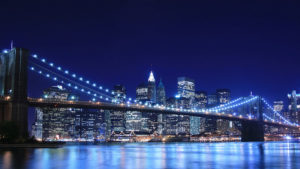New York City sprinkler code requires working fire protection systems to be in place in many buildings. But how do you know your fire sprinkler system is working properly? Do you know the signs of a fire sprinkler leak?
Here’s what to watch for:
Signs of a Fire Sprinkler Leak
#1: Puddles
If there’s water on the floor underneath the sprinkler heads, this is a sign there may be a problem. These puddles can be very tiny – just a few small drips – or they can be larger. While it’s easy to dismiss tiny puddles, the fact is they are your early warning sign to call the plumber and have the problem fixed.
#2: Discolored sprinkler heads or ceilings
Dripping water can cause the sprinkler head or surrounding ceiling area to become discolored. Discolored ceilings are always concerning, as ceilings change color before they eventually fail and fall. Obviously, you want your ceilings to stay overhead, so if there’s water damage showing near or surrounding the sprinklers, call in your local plumber for help right away.
However, the issue might be deeper than just surface damage. Fire sprinkler systems can fail due to defects or damage in their components. This could include damage to the sprinkler head, pipes, or an operational failure during activation. These problems don’t just cause unsightly stains; they can lead to a malfunction when you need the system most.
To keep your sprinkler system in top condition, consider these steps:
- Regular Inspection and Maintenance: Have certified professionals conduct routine checks to identify and address any potential issues before they escalate.
- Repair Damaged Parts: Promptly fix or replace any damaged components, such as sprinkler heads or pipes, to ensure the system functions correctly.
- Protective Measures: Install small protective cages around sprinkler heads to prevent accidental damage, which can compromise the system’s effectiveness.
By taking these preventive measures, you can safeguard your property from both cosmetic and functional damage, ensuring your fire sprinkler system is ready to protect you when needed..
#3: A Constantly Running Compressor
Ideally, the pipes in your sprinkler system are free from water unless needed for emergency purposes. When there is water in the pipes, such as is the case when you have a leak, the compressor will run in an effort to clear that water from the lines. This should be a relatively rare event. If your compressor is running all of the time, there is a problem with your sprinkler system. The problem with the compressor running all of the time is that this will cause the compressor to overheat and eventually fail. This will require expensive repairs, so you want to prevent the problem if you can.
#4: Rising Water Bills
Often the first clue about leaking sprinkler systems a property owner pays attention to is a significantly increased water bill. We all know the City is very diligent about billing for every drop of water used – whether that water is for designated purposes or leaking through the sprinkler system. If your water bill has suddenly spiked, and you don’t know why, call in your local licensed plumber to investigate. Your sprinkler system may be the cause!
Why is Regular Maintenance Crucial for Fire Sprinkler Systems?
Regular maintenance of fire sprinkler systems is essential for several critical reasons. First and foremost, it ensures the system’s reliability in emergencies. If neglected, components can deteriorate, leading to malfunction when you need them most. A sprinkler system that doesn’t function properly during a fire can result in devastating consequences, putting lives and property at risk.
Complying with Regulations
Compliance with safety standards is another key aspect. Organizations like the National Fire Protection Association (NFPA) and local authorities mandate that commercial properties, according to their specific industry requirements, must maintain fully operational sprinkler systems. Regular inspections and maintenance help you adhere to these crucial regulations, avoiding potential legal issues and fines.
Preventing Failures
Routine checks and repairs can proactively identify and resolve issues such as leaks, corrosion, or blockages that may impair system performance. By scheduling regular inspections—recommended every six months or annually—you ensure that any minor defects are addressed before they escalate into significant problems. This preventive approach significantly reduces the risk of system failure.
Ensuring Safety and Peace of Mind
Finally, maintaining your fire sprinkler system provides peace of mind. Knowing that your safety infrastructure is in optimal condition allows you to focus on your business operations. Engaging a certified professional for routine maintenance ensures that your system meets all the necessary safety guidelines, keeping your commercial establishment protected.
In essence, regular maintenance isn’t just a recommendation—it’s a critical part of fire safety that safeguards people, property, and business continuity.

